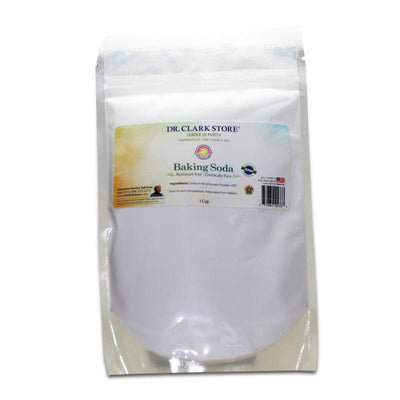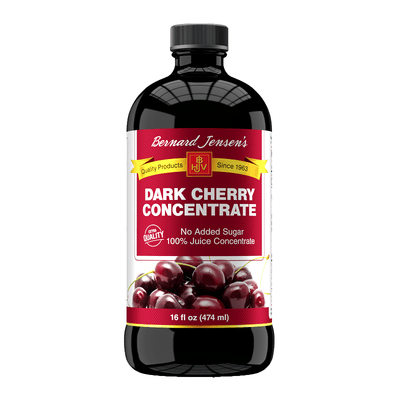The Top 4 Supplements for Digestive Issues like Constipation and Irregularity

Dealing with constipation can be, well, uncomfortable to talk about. You might feel like you're the only one struggling, but actually, constipation affects a significant portion of adults. This means there's no need to suffer in silence. Thankfully, alongside lifestyle changes, digestive and constipation supplements might offer some relief. Let's explore some options, but always remember: this information isn't a substitute for professional medical advice. Chat with your doctor before starting any new supplement regimen.
Understanding Constipation and Its Causes
Before diving into supplements, it's helpful to grasp why constipation happens in the first place. In essence, it's all about infrequent bowel movements, which often lead to digestive symptoms. This might look like infrequent trips to the bathroom, difficulty passing stool, or feeling like you haven't fully emptied your bowels. Several factors can contribute to constipation.
Common Culprits Behind Constipation:
- Inadequate Fiber Intake: Fiber adds bulk to your stool, helping it move through your system more easily. If you experience occasional constipation, consider increasing your dietary fiber intake with foods like wheat bran.
- Dehydration: When you don't drink enough fluids, your body might try to compensate by pulling more water from your colon, leading to harder stool. Increasing your water content can sometimes be an effective treatment.
- Medications: Certain medications can have constipation as a side effect. It is advisable to speak with your healthcare provider about any potential side effects.
- Ignoring the Urge: Holding it in when nature calls can disrupt your bowel's natural rhythm. This can worsen constipation over time.
- Medical Conditions: Sometimes, underlying medical conditions like irritable bowel syndrome (IBS) can be the root cause. If you suspect a health condition, seek guidance from a healthcare provider for proper constipation treatment.
Navigating Digestive and Constipation Supplements
Now, let's delve into those supplements you were curious about. Keep in mind: just like medications, supplements can have different effects on individuals.
1. Magnesium: A Multifaceted Mineral

This essential mineral doesn't just keep your bones strong. Certain types of magnesium, like magnesium citrate, seem to play a role in relieving constipation, though more research is always welcome. Magnesium oxide can improve digestive health, and using magnesium supplements can sometimes improve symptoms of constipation.
How Magnesium Might Help:
- Drawing Water into the Colon: Think of it like adding moisture to dry soil – magnesium might help soften the stool, making it easier to pass. Herbal supplements that include magnesium may also offer this benefit.
- Supporting Muscle Contractions: Magnesium could play a part in the natural muscle contractions that propel waste through your digestive tract. These contractions are also known as intestinal motility, and improving them may reduce constipation.
Types of Magnesium Supplements for Constipation:
- Magnesium Citrate: Often touted for its gentle laxative effects. This type of magnesium is a common ingredient in osmotic laxatives, which work by increasing water in the intestines.
- Magnesium Oxide: Research suggests it might improve stool consistency and reduce the time it takes for food to move through the digestive system.3 This can be helpful for those experiencing constipation symptoms like infrequent bowel movements.
- Magnesium Sulfate: Some studies indicate potential benefits in treating constipation.4 It's important to note that while magnesium sulfate is generally considered safe, excessive use can have adverse effects.
A word of caution – while magnesium is generally safe, excessive magnesium intake can have risks, particularly for individuals with kidney problems.6 Always stick to recommended dosages and consult your doctor before adding a magnesium supplement to your routine. They can also tell you about the potential for interactions with other medications, like iron supplements.
2. Probiotics: Supporting a Balanced Gut

We often hear about gut health, and rightfully so. Maintaining a healthy gut is important for many bodily functions, including energy production. More research is needed to fully understand the connection between probiotics and constipation relief. Some folks find that these supplements, containing beneficial bacteria, contribute to better digestion.
Potential Benefits of Probiotics for Constipation:
- Promoting Regularity: Some studies suggest certain probiotic strains could increase stool frequency.8 This might be especially helpful for individuals dealing with irregularity, a common symptom of constipation.
- Improving Stool Consistency: Research indicates that probiotics might influence the composition of gut bacteria, potentially leading to softer stool and easier bowel movements. Probiotic supplements can be a helpful addition to a balanced diet for maintaining digestive function.
Promising Probiotic Strains:
- Bifidobacterium lactis: Studies suggest this strain could be effective for constipation relief.8 You can find this strain in some probiotic supplements marketed for digestive health.
- Lactobacillus and Bifidobacterium Species: Research points to their potential benefits in managing constipation.9 These are among the most well-studied probiotic strains and are often combined in supplements.
Keep in mind that the effectiveness of probiotics can vary greatly depending on the strain, dosage, and individual factors. Also, some individuals may experience occasional constipation even when taking probiotics. Always chat with a healthcare professional before trying a new probiotic.
3. Fiber Supplements:
We've already touched on the importance of fiber. It's like adding scaffolding to a building – it provides structure and support. If you struggle to get enough fiber from your diet alone, fiber supplements could be a helpful addition. These supplements work by increasing the bulk of your stool, which helps promote regular bowel movements.
 Types of Fiber and Their Benefits:
Types of Fiber and Their Benefits:
- Soluble Fiber: This type dissolves in water, forming a gel-like substance that can soften stool and promote regularity. Soluble fiber can be particularly helpful for people experiencing hard, dry stools.
- Insoluble Fiber: Doesn't dissolve in water but adds bulk to your stool, potentially helping it move through your digestive system more efficiently. Insoluble fiber supplements are often recommended for those struggling with infrequent bowel movements.
Examples of Fiber Supplements:
- Psyllium: A type of soluble fiber often found in supplements like Metamucil.12 Psyllium husk is a popular choice for its high fiber content and ability to absorb water in the digestive tract.
- Inulin: A naturally occurring fiber found in many plants. Inulin is a type of prebiotic fiber, which means it feeds the beneficial bacteria in your gut.
- Glucomannan: A soluble fiber extracted from the konjac plant. Glucomannan is known for its ability to absorb water and form a thick gel, which can help with constipation relief.
Studies have shown that various fiber supplements, including those mentioned above, can effectively increase stool frequency and improve consistency. However, it's important to note that consuming large amounts of fiber supplements at once can lead to side effects like bloating and gas. To optimize your fiber intake, consider adding a variety of high-fiber foods like fruits, vegetables, and whole grains to your diet alongside any supplements you choose. These foods also provide essential nutrients that contribute to overall health.
4. Enzymes
Digestive health is a hot topic, and with good reason. Your gut plays a crucial role in your overall well-being, affecting everything from nutrient absorption to immune function. At the heart of efficient digestion are digestive enzymes, which help tackle common gastrointestinal (GI) issues like constipation and irregularity. If you’re among those seeking digestive health solutions, understanding how these enzymes work could be your ticket to better gut health.
Understanding Digestive Enzymes
Digestive enzymes are specialized proteins that your body produces to break down the foods you consume. By converting complex food molecules into simpler, absorbable forms, they jump-start your metabolism and ensure that your body gets the nutrients it needs to function optimally. These enzymes are naturally present in various parts of your digestive system, including your saliva, stomach, pancreas, and intestines.
However, as we age, our body's production of digestive enzymes can decrease, leading to digestive upsets and less efficient nutrient absorption. This is where supplementation might come in handy, aiding in the breakdown of food substances and reducing the energy your body expends during digestion, which in turn helps prevent post-meal fatigue.
The Role of Digestive Enzymes in GI Health
1. Relieving Constipation and Irregularity
Constipation and irregular bowel movements can be uncomfortable and disruptive. Digestive enzymes can help alleviate these issues by enhancing the breakdown of foods, particularly those that are hard to digest. When food is effectively broken down, it moves more smoothly through the digestive tract, reducing the likelihood of constipation.
Enzymes like amylase, protease, and lipase play crucial roles:
- Amylase aids in the digestion of carbohydrates, turning starches into sugars.
- Protease works on proteins, breaking them down into amino acids.
- Lipase targets fats, converting them into glycerol and fatty acids.
By ensuring that these macronutrients are fully digested, digestive enzymes can contribute to regular bowel movements and improved digestive comfort.
2. Promoting Nutrient Absorption
When food isn't properly digested, the absorption of vital nutrients is compromised. Digestive enzymes enhance the breakdown of food components, making it easier for your intestines to absorb nutrients efficiently. This not only supports your body's nutritional needs but also helps maintain energy levels and overall vitality.
3. Preventing Post-Meal Fatigue
A lack of sufficient digestive enzymes means your body has to work overtime to digest food, leading to energy depletion. This is why you might feel sluggish or tired after meals. By supplementing with digestive enzymes, you can reduce the strain on your digestive system, allowing for more efficient breakdown and absorption of nutrients, and leaving you feeling more energized after eating.
Conclusion
Dealing with digestive issues like constipation isn't a walk in the park, but remember – you're not alone. Digestive and constipation supplements can offer potential relief, acting as helpful tools alongside lifestyle changes. Remember to consult your healthcare provider for proper constipation treatment, especially if constipation symptoms are severe or persistent. While I've shared some insights, the journey to better digestive health is personal. It's crucial to talk to your doctor before trying new supplements. They can help determine the right approach and dosage for your unique needs, and rule out any potential interactions with current medications.







What do you use to relieve constant diarrhea ? It’s not crons it IBS
Leave a comment